How this Australian mother made $201,000 without a full-time job
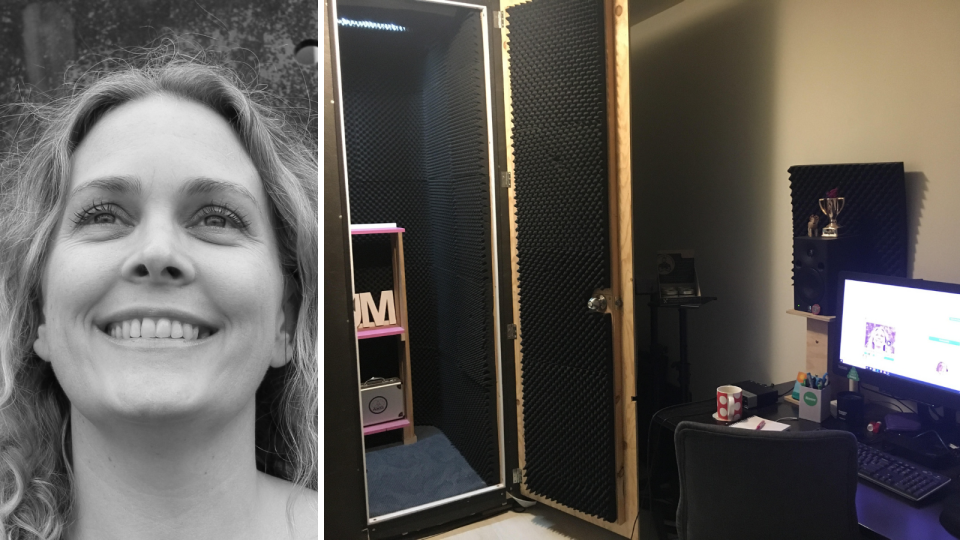
How many people can say they’re pursuing their passion, enjoying their lifestyle more and making a comfortable amount of money after the collapse of their business?
That’s the life that New Zealand-born Aussie mother-of-two Sue McLachlan is living – and she’s doing it all without subscribing to the nine-to-five corporate grind.
After her international cloth nappy company collapsed at the end of 2014, she was back to square one.
Based in Newcastle, and without any formal qualifications, McLachlan was on the dole and didn’t know where to turn to find a job.
The same week her cloth nappy company fell apart, her father died, plunging her into a state of depression.
It was then that the gig economy presented itself as a quick solution to her income problems: taking up projects online was something she could do without needing to venture outside.
So she dug deep into her roots to find what she could offer in the world of freelance. It brought her back to her seven years’ experience in radio, which began at 17 years old and had spanned news-reading, on-air presenting and radio sales.
Related story: How this retiree rakes in $1,000 a month for sitting at home
Related story: Investor by day, Wonder Woman by night: Inside this thousand-dollar hobby
Related story: The gig economy is growing, but the cracks are starting to show
In January 2015, McLachlan set up profiles on a number of online freelance marketplaces, bought some basic equipment to get started, and created a demo reel to show off her abilities.
“At that point, I knew how to speak but I didn’t understand the tech side of it,” she told Yahoo Finance.
Voiceover work – little projects with just a couple days’ turnaround time – was something she knew she could do.
“I put a gig on [freelance marketplace Fiverr] just to see how it would go, and within a couple of months I was getting more work on Fiverr than I was getting anywhere else.”
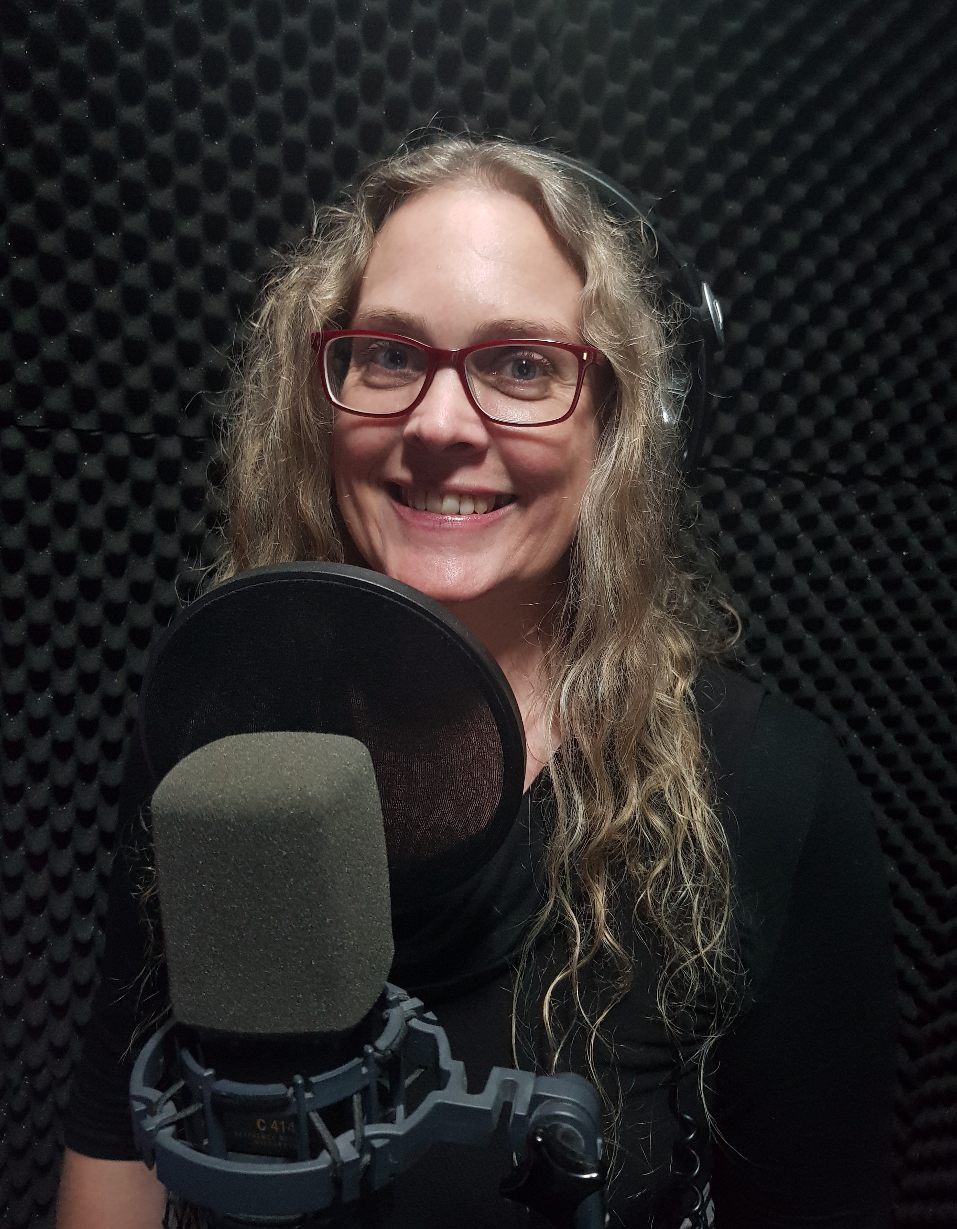
Making it work
Most of the voiceover gigs McLachlan gets comes from businesses, large and small, who need their phone systems and voicemails recorded. So it’s her voice you hear when you’re advised to “please press one” or “please hold”.
Major organisations such as Telstra, AMP and Beyond Blue are past clients.
But success certainly didn’t come overnight. “Because I had no experience or background, I tried really hard. I would record it as if I got the job, and it helped me get those first couple [of gigs].”
After a steady stream of work started to come through from Fiverr, McLachlan focused her attention on that platform.
About eight months after she set up her account, it seemed like a switch had been flicked: suddenly, she was getting such a high volume of work that she had to extend her turnaround time to five or six days.
Contrary to her expectations, the sudden tide of work never crashed; if anything, it only rose higher as clients got a sense of how in-demand she was for her smooth, trustworthy and clear voice.
As her voiceover work from Fiverr became her main source of income, it gave Mclachlan the leeway to increase her prices, get off the dole, stop applying for jobs far beneath her skills and experience, and really make a living out of the gig economy.
“It was meant to be this kind of interim thing until I figured out what the hell I was going to do,” she told Yahoo Finance. “Because I love doing it, four years later, I’m still doing it.”
Taking a load off
Taking on project-based work, a hallmark of the gig economy, has freed up McLachlan’s lifestyle and taken away the stress of operating her own business.
McLachlan’s nappy business fell apart when it failed to keep up with a shifting export market.
Over 10 years she saw her business grow from a hobby in her kitchen to an international operation with offices in three countries that went on to win NSW Small Business Exporter of the Year in 2011.
With a decade of experience under her belt, she toyed with the idea of getting a full-time job in a similar product-based business.
But all the job openings commensurate with her experience required a formal degree in marketing, something she didn’t have.
On freelance marketplaces, however, no one needs you to prove your formal qualifications – just the confidence that you can get the job done.
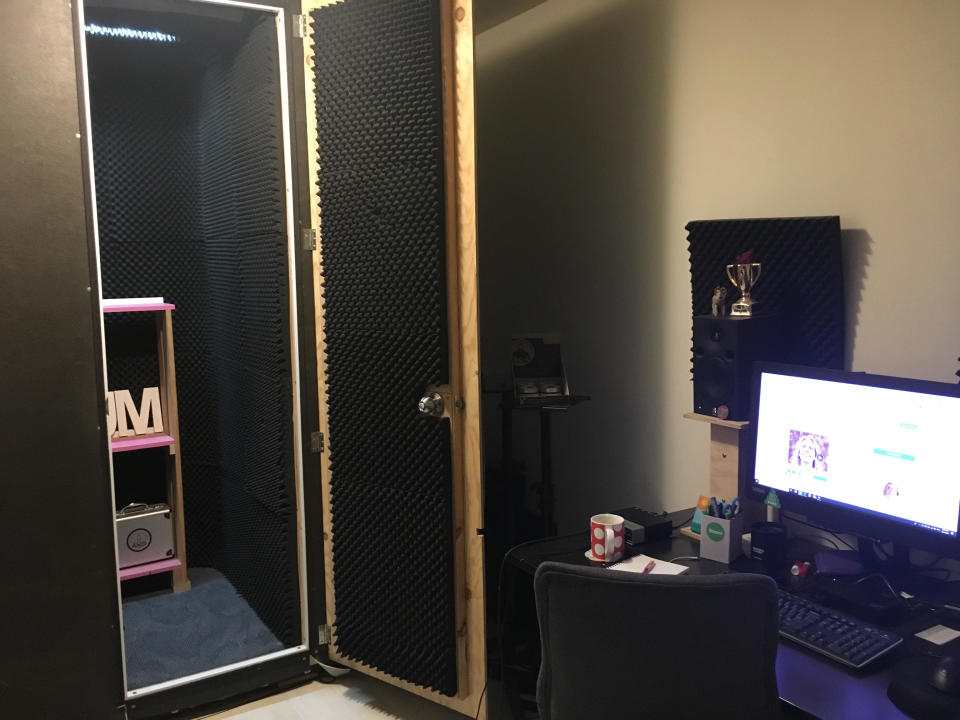
And being freed up from running her own business was the change of pace she needed.
“Changing what I was doing personally just worked well for me,” McLachlan said.
“It didn't have the stress of having employees, and I needed something that I could do around my kids. So it was just the perfect way that I could still do something that I enjoy that I had a bit of control over.”
Gone were the days of stress, long hours, and all the other pains she experienced by being a business owner.
“So I make a bit less, but I do a lot less work, and I don’t have to travel like I do with my other role.”
A sustainable lifestyle
Since setting up her account in January 2015, McLachlan has made more than US $140,000 on the Fiverr platform, or roughly $36,000 to $43,000 a year.
That’s without taking into account that she has sources of income flowing in from other online platforms, as well as a nascent business consultancy that draws on her marketing experience which has grown organically out of answering questions from her clients who ask for business advice.
But if she put all her eggs in one basket, would she be able to live entirely off income made from the online marketplace?
“You absolutely could make a livable income out of it.”
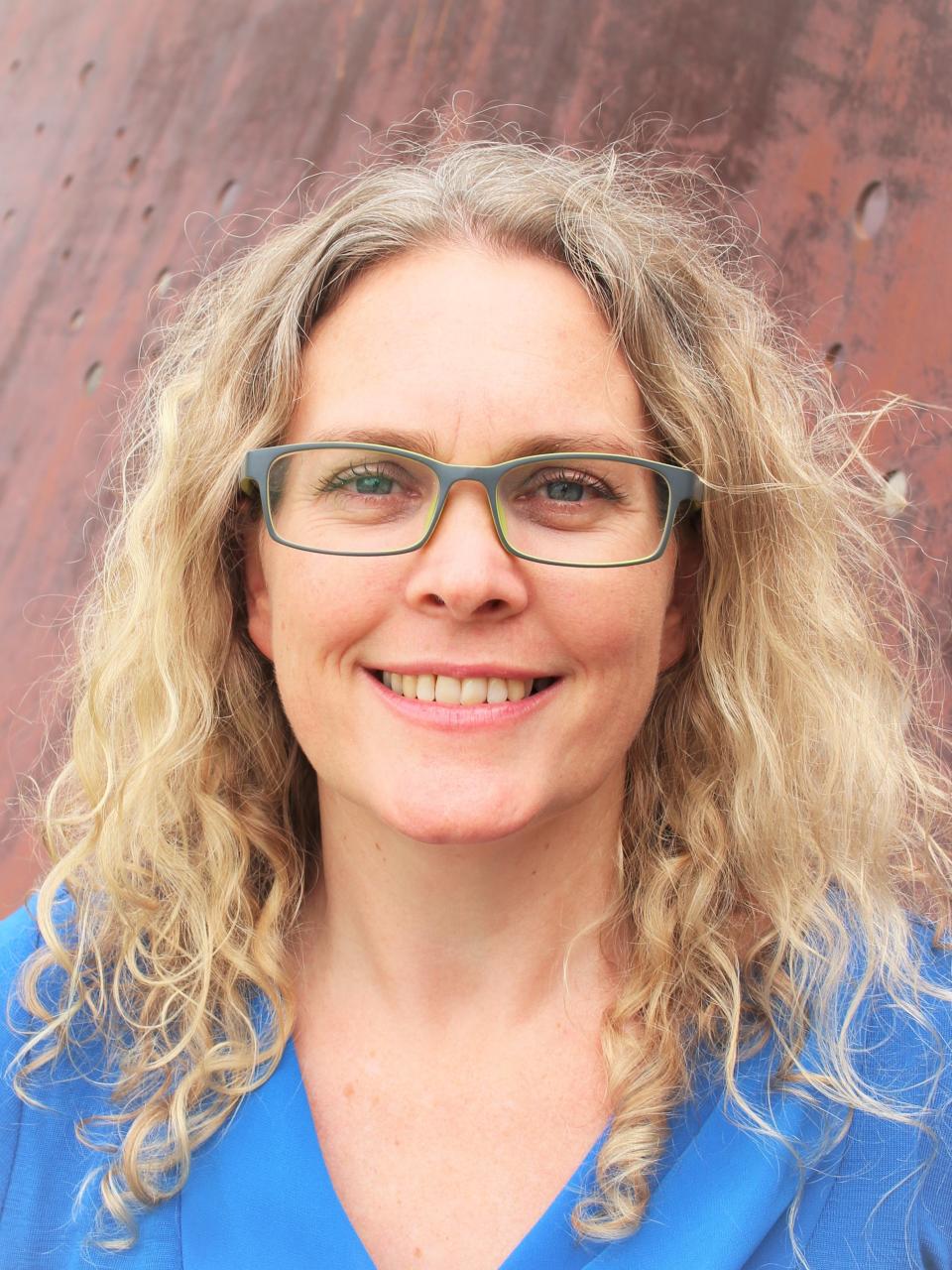
But it depends on what work you do on the platform, and the platform itself, too, she added. For instance, those who need voiceover work tend to be working on smaller projects with tight turnarounds and are therefore more vulnerable to fluctuating demand, while others such as website designers can plan and manage bigger projects.
Fingers in many pies
But, in the spirit of a true member of the gig economy, McLachlan is strict with blocking out her time in order to dedicate more hours to building up her business and marketing consultancy, The Unicorn Assist, her side-hustle to her freelance voiceover work.
All four clients of her consultancy come from her voiceover work who would ask to pick her brains once they realised she had a wealth of experience in business, she said.
Organically, her business consultancy was born, and McLachlan – ever the entrepreneur – realised she could put lessons learnt from her years at the helm of an international business to good use while maximising her income streams.
"I have great skills in that area, and I looked at how I could make that work for myself as a business going forward.”
In order to cope with the extra work, she hands over the editing work to an audio editor she found on Fiverr, which sees the gig economy come full circle, and now she splits her time evenly between her voiceover work and growing her business consultancy.
The Unicorn Assist website is also host to an online course she’s created called ‘Business 101… Literally’ for $399, which teaches you exactly what the title implies: a series of 101 videos that are a comprehensive, step-by-step guide on how to start and run a business from the bottom-up.
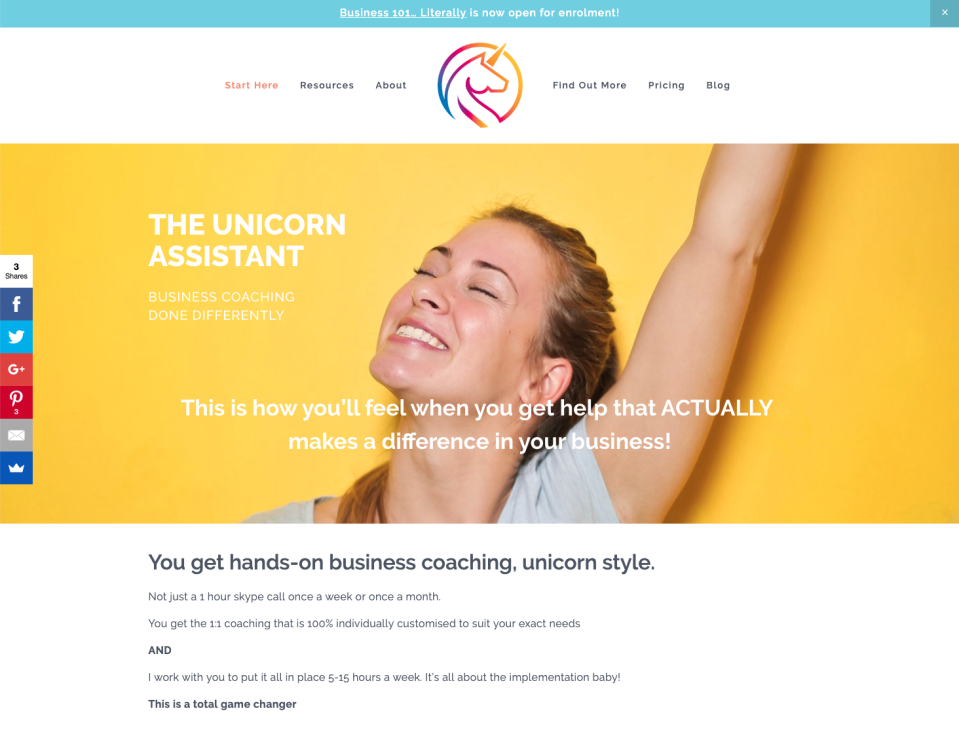
Would she ever consider pulling back from her voice-over work entirely and working solely on her business consultancy?
“Even if the business consulting took off, I would still miss the voiceover work,” she said.
“I still want to keep that.”
One tip for success in the gig economy
How does one build a client base from scratch?
The answer is as age-old as commerce and trade itself: customer service.
McLachlan says she has several regular clients that return to her every week or two weeks for work thanks to the customer experience she provides.
“Something that’s been really helpful is ... really taking the time to talk to the customers and finding out what they want and not just be like, ‘here’s your work mate, see ya’,” she said.
“I really put a lot of emphasis into the whole customer experience for my customers which has helped me build up a really strong client base.”
Make your money work with Yahoo Finance’s daily newsletter. Sign uphere and stay on top of the latest money, news and tech news.

 Yahoo Finance
Yahoo Finance 
